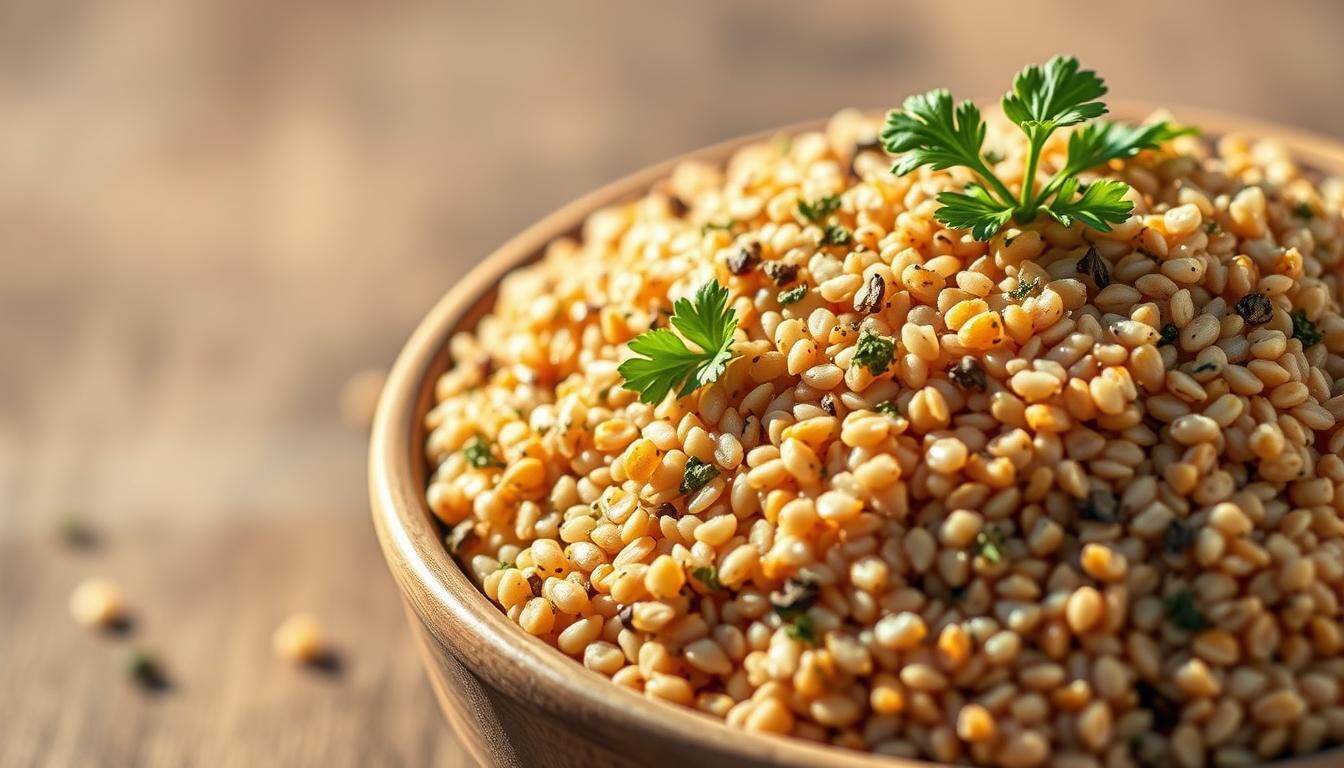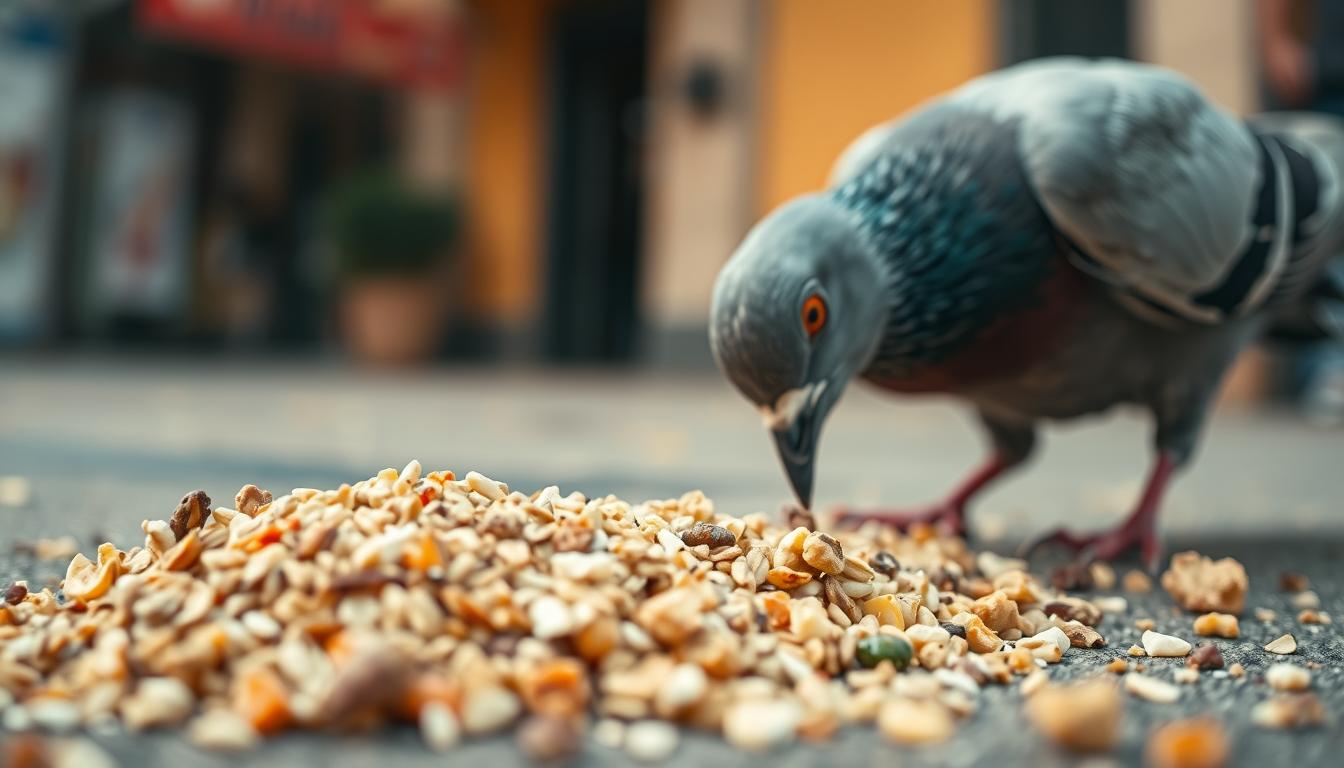Have you ever wondered if sharing a slice of deli ham with your feline friend is safe? While cats are obligate carnivores, their diet requires careful consideration. Ham can offer lean protein, but many deli varieties are packed with additives and high salt, making them potentially harmful to your cat.
Before considering ham as a treat, it’s crucial to prepare it properly. This article reveals 9 surprising facts about deli ham that might change your perspective. Always consult your vet before introducing human food into your cat’s diet to ensure their balanced diet remains intact.
Discover how deli ham can be a safe snack for your cat when prepared correctly. Let’s dive into these surprising insights that will make you rethink deli ham as a treat for your pet.
Table of Contents
Understanding Your Cat’s Dietary Requirements
As a cat owner, it’s essential to understand your pet’s dietary needs to ensure they stay healthy. Cats are obligate carnivores, meaning they require a diet rich in animal protein to thrive. Their nutritional requirements are unique, and meeting them is crucial for their overall well-being.
Obligate Carnivores and Nutritional Balance
Cats need a diet high in protein from animal sources. This includes ingredients like chicken, turkey, and fish. They also require specific nutrients such as taurine, an essential amino acid found in meat, which is vital for their heart health and vision.
- Cats require a balanced diet to prevent nutritional deficiencies.
- Feeding your cat raw meat can be beneficial but must be handled safely to avoid bacterial contamination.
While cat food is formulated to meet these needs, human food items like deli ham should be given cautiously due to high sodium and additives.
Key Nutrients Essential for Feline Health
Besides protein, cats need vitamins and minerals. A balanced diet ensures they get all necessary nutrients. Commercial cat food is designed to provide complete nutrition, making it the best choice for your pet.
- Always make sure to choose high-quality cat food that meets nutritional standards.
- Consult with your vet to ensure your cat’s diet is appropriate for their life stage and health conditions.
Examining Deli Ham: A Closer Look
When considering deli ham as a treat for your cat, it’s important to understand the differences between deli-processed and home-cooked options. Deli ham undergoes significant processing, which can introduce high levels of salt and additives that may harm your pet.
High Sodium and Additive Concerns
Deli ham is often high in sodium, which can be dangerous for cats. Excessive salt can lead to dehydration and kidney issues. Additionally, many deli meats contain preservatives like nitrates and nitrites, which can be toxic to cats in large amounts. These additives, along with high fat and salt content, make deli ham a less healthy choice compared to home-cooked alternatives.
How Processing Affects Nutritional Value
The processing of deli ham can reduce its nutritional value. While ham does provide some beneficial nutrients like Vitamin B6 and zinc, the processing can increase the concentration of harmful compounds. This makes it less nutritious and more risky for your cat’s health. Always check the labels to ensure you’re sharing only small, safe portions of deli meat.
Remember, moderation is key. If you choose to share deli ham with your cat, keep the amount small and infrequent to avoid potential health risks.
Can Cats Eat Deli Ham: Safety and Nutritional Considerations
Feeding your cat deli ham can be a tricky decision. While it’s not toxic, the high sodium and additives make it a less-than-ideal treat. Always check the label for harmful ingredients like garlic or onions, which can be toxic to cats.
Only offer a small amount of ham as an occasional treat. Moderation is key to preventing health issues. Choose unseasoned, properly cooked ham to minimize risks. Always consult your vet before introducing new foods to your cat’s diet.
Deli ham and home-cooked ham differ in nutritional value. Deli ham often has more sodium and preservatives, making it less healthy. Overfeeding can lead to serious health problems, so monitor the amount you give your cat carefully.
Stick to small portions and avoid making ham a regular part of your cat’s diet. Focus on providing a balanced diet with high-quality cat food as the main staple. This ensures your cat stays healthy and thrives.
Deli Ham vs. Home-Cooked Ham: What’s the Difference?
When it comes to sharing ham with your cat, understanding the differences between deli ham and home-cooked ham is crucial. Both options can be part of your cat’s diet, but they come with distinct advantages and risks.
Benefits of Preparing Ham at Home
Home-cooked ham offers more control over ingredients, making it a safer choice for your cat. By cooking ham yourself, you can avoid harmful additives like preservatives and excess salt. This makes it a healthier option compared to deli ham, which is often high in sodium and fat.
- Home-cooked ham allows you to control seasoning and salt levels.
- Cooking at home reduces the risk of harmful additives found in deli ham.
- It ensures your cat gets a leaner, cleaner source of protein.
Risks Associated with Prepackaged Ham
Prepackaged deli ham is convenient but comes with risks. High sodium and preservatives can harm your cat’s health. These additives can lead to issues like dehydration and kidney problems over time.
- Deli ham often contains high levels of sodium and preservatives.
- Excess salt can lead to dehydration and kidney issues.
- Regular consumption may harm your cat’s overall diet balance.
While deli ham can be an occasional treat, home-cooked ham is the safer choice. Always keep portions small and ensure your cat’s diet remains balanced with high-quality cat food.

Portion Control and Frequency: How Much Is OK?
When sharing deli ham with your cat, it’s crucial to practice portion control. While it can be a tasty treat, overfeeding can lead to health issues. Start by offering a small amount to see how your cat reacts.
Recommended Serving Sizes for Cats
Veterinarians suggest cutting deli ham into 1-inch cubes and offering them only two or three times a week. This moderation ensures your cat enjoys the snack without risking their balanced diet. Remember, treats should not make up more than 5% of their weekly calorie intake.
Understanding the Risks of Overfeeding
Overfeeding can disrupt your cat’s nutrient balance and lead to weight gain or other health problems. High sodium in deli ham can cause dehydration and kidney stress. Always monitor your cat’s reaction and consult your vet if you notice any adverse effects.
Keep deli ham as an occasional treat to maintain your cat’s healthy diet. Focus on high-quality cat food as their main staple for optimal nutrition and well-being.
Special Considerations for Kittens
Kittens have unique dietary needs that differ from adult cats. Their digestive systems are sensitive, and introducing new foods requires careful consideration.
Digestive Sensitivity and Nutritional Needs
Kittens are natural carnivores, requiring a diet rich in protein from animal sources. However, their young age makes them less tolerant of processed meats like deli ham. Even small amounts can cause digestive upset if not offered sparingly.
- Kittens have different nutritional needs and are less tolerant of processed meat.
- While they may show curiosity and try to eat ham, caution is essential.
- Make sure to offer only very small portions to avoid overwhelming their system.
Overfeeding can lead to digestive issues such as vomiting or diarrhea. Kittens require less processed human food compared to adults, focusing instead on high-quality cat food tailored to their life stage.
If you choose to offer ham as an occasional treat, it should be a minimal snack. Always consult your vet to ensure it aligns with your kitten’s dietary needs and health status.

Potential Health Issues: What to Watch Out For
Sharing deli ham with your kitty can be risky if you don’t monitor their health. High salt levels in deli ham can lead to sodium toxicity, causing vomiting and diarrhea. These symptoms often indicate stomach distress, so it’s crucial to watch your cat closely after feeding them ham.
Symptoms of Salt Poisoning and Additive Reactions
- Vomiting and diarrhea are common signs of sodium toxicity.
- High salt and fat salt content can cause severe health issues in cats.
- Unusual stomach reactions may signal that the ham doesn’t agree with your cat.
- Additives and bacteria in deli ham can trigger negative reactions.
- Consult your vet immediately if you notice any warning signs.
Even a small snack can be harmful if overfed. Always prioritize your cat’s health by keeping treats minimal and seeking veterinary advice if any symptoms arise.
Safe Preparation and Cooking Tips for Ham
Preparing ham for your cat requires careful attention to detail to ensure it’s safe and healthy. Proper cooking and handling are essential to eliminate harmful bacteria and reduce the risk of health issues.
Proper Cooking Methods to Eliminate Bacteria
Cooking ham thoroughly is crucial to kill bacteria like Salmonella and E. coli. Here are some key steps to follow:
- Cook ham to an internal temperature of at least 165°F (74°C) to ensure food safety.
- Avoid adding seasonings or spices, as they can be harmful to your cat.
- Use a food thermometer to verify the internal temperature, especially when cooking raw ham.
While ham can be a tasty treat for your cat, it must be served plain and unseasoned. Even small amounts of salt or spices can be dangerous for your pet. Always prioritize your cat’s safety by preparing ham without any additives.
Portion control is also important. Cut the cooked ham into small, manageable pieces to serve as an occasional snack. Remember, treats should not make up more than 5% of your cat’s daily calorie intake. Always monitor your cat’s reaction and consult your vet if you notice any signs of discomfort or illness.
Alternative Protein Sources for Your Cat
While deli ham can be an occasional treat, it’s important to explore other protein-rich foods that better meet your cat’s nutritional needs. Fresh meats like chicken, turkey, and fish are excellent alternatives that provide essential nutrients without the high sodium and additives found in deli meats.
Chicken and turkey are lean protein sources that support muscle growth and energy. They are also easier to digest than processed ham, making them ideal for cats with sensitive stomachs. When preparing these meats, ensure they are fully cooked and free of seasonings to avoid any potential harm.
Fish, particularly varieties like salmon, offers omega-3 fatty acids that promote healthy skin and coat. However, it should be given in moderation to prevent an overbalance of fatty acids in your cat’s diet. Always choose fresh, boneless fish to reduce the risk of choking hazards or internal injuries.
Beef can also be a suitable option for cats, but opt for lean cuts to avoid excessive fat intake. It’s rich in vitamins like B6 and B12, which are crucial for your cat’s nervous and immune systems. As with any new food, introduce it gradually and monitor your cat’s reaction.
When considering these alternatives, always consult your vet to ensure they align with your cat’s specific dietary needs. Reading labels and selecting sources free from harmful additives will help maintain your cat’s overall health and well-being.
Emergency Feeding: When You’re Out of Regular Cat Food
Running out of your cat’s regular food can be stressful, but there are safe ways to handle the situation temporarily. While your cat’s usual cat food is the best option, there are quick, nutritious alternatives you can provide in an emergency.
Quick and Nutritious Options
If you find yourself without your cat’s regular food, there are several safe and healthy alternatives you can offer. Plain cooked chicken, turkey, or scrambled eggs can serve as temporary solutions. These options are easy to prepare and provide essential protein for your pet.
- Boneless, skinless chicken breast or thighs, fully cooked without seasoning.
- Cooked turkey, similar to chicken, is a lean meat option.
- Scrambled eggs, free from salt and spices, can be a nutritious treat.
- Cooked fish (like salmon or cod), ensuring all bones are removed.
- Plain, unflavored yogurt (in small amounts) can provide probiotics.
These emergency meals should only be used as a temporary solution. Always return to your cat’s regular, nutritionally balanced cat food as soon as possible. It’s important to avoid using these options as a regular substitute, as they may not provide the complete nutrients your cat needs.
When preparing emergency food, ensure all ingredients are fresh and free from harmful additives. Avoid any foods containing onions, garlic, or other toxic substances. Also, check expiration dates to ensure the food is safe for your pet to consume.
- Always monitor your cat for any adverse reactions after an emergency meal.
- Use these options sparingly and only when necessary.
Remember, your cat’s health is a top priority. If you’re ever in doubt about what to feed your pet, consult your veterinarian for guidance. They can provide personalized advice based on your cat’s specific needs and health status.
Conclusion
In conclusion, while deli ham can be an occasional treat for your cat, safety and moderation are paramount. As discussed, deli ham’s high sodium content and additives pose risks, making it less ideal than home-cooked alternatives. Always prioritize your cat’s health by maintaining a balanced diet with high-quality cat food as the main staple.
Before introducing any human food, consult your vet to ensure it aligns with your cat’s dietary needs. While deli ham can be a fun treat, offer it in exceptionally small portions. Consider safer protein sources like plain cooked chicken or turkey for a healthier snack.
Emphasize safe feeding practices, such as avoiding seasonings and monitoring for adverse reactions. By making informed choices, you can help keep your cat healthy and happy, ensuring they thrive with a well-balanced diet.
FAQ
Is it safe to share deli ham with my cat?
While deli ham is not toxic to cats, it’s not a safe or healthy option. Deli ham is high in salt and additives, which can harm your cat’s health if consumed regularly or in large amounts. Always prioritize a balanced cat food diet.
Can raw meat be a good protein source for my cat?
While cats are carnivores and need protein, raw meat can pose risks. It may contain bacteria like Salmonella or E. coli, which can harm your cat’s stomach. Cooked meat is a safer alternative if you want to add variety to your cat’s meals.
How much salt can my cat tolerate in their diet?
Cats are sensitive to high salt intake. Excessive salt can lead to dehydration, vomiting, or even more severe health issues. Always keep salty foods like deli ham out of your cat’s reach and stick to low-sodium options if you must share human food.
Can kittens eat deli ham?
Kittens should never eat deli ham. Their digestive systems are highly sensitive, and the high salt and fat content can cause serious health problems. Kittens require a nutrient-rich, balanced diet specifically formulated for their growth and development.
What are the risks of feeding my cat processed deli meat?
Processed deli meats, including ham, contain preservatives, sodium, and unhealthy fats. These can lead to obesity, digestive issues, and other long-term health problems in cats. Fresh, unprocessed foods are always a better choice.
How often can I give my cat cooked ham as a treat?
Cooked ham can be given in small amounts as an occasional treat. However, it should not make up more than 10% of your cat’s daily calorie intake. Overfeeding can lead to weight gain and imbalanced nutrition.
What are some healthy alternatives to deli ham for my cat?
Consider offering plain, cooked chicken or turkey as a protein-rich treat. These options are lower in salt and fat compared to deli ham. Always remove skin and seasonings to keep it safe for your cat.
Can deli ham replace regular cat food?
No, deli ham cannot replace your cat’s regular food. It lacks essential nutrients like taurine and vitamin A, which are crucial for feline health. Always ensure your cat’s main meals are high-quality, balanced cat food.
What should I do if my cat eats deli ham?
If your cat eats a small amount of deli ham, monitor them for signs of distress, such as vomiting or lethargy. If symptoms persist, contact your vet immediately. Large amounts of deli ham can be dangerous due to high salt content.
How can I ensure my cat’s diet is well-balanced?
Focus on feeding high-quality commercial cat food that meets your cat’s nutritional needs. Consult your vet to determine the best diet for your cat based on their age, health, and lifestyle.
Source Links
- Emergency cat food: The human foods cats can eat – https://bowwowinsurance.com.au/pet-community/pet-talk/human-foods-for-cats/
- Why My Cat Is a Picky Eater: Understanding and Addressing Feline Food Preferences – Petful – https://www.petful.com/pet-health/my-cat-is-a-picky-eater/
- Everything You Need to Know About Food Poisoning and How to Treat It – https://www.healthline.com/health/food-poisoning
- People Foods Cats Can Eat – https://www.webmd.com/pets/cats/ss/slideshow-people-foods-cats-can-eat
- Can Cats Eat Deli Meat (Lunch Meat)? Nutritional Facts & Safety Guide | Hepper – https://www.hepper.com/can-cats-eat-deli-lunch-meat/
- Can Cats Eat Ham | Tips for Feeding Cats Ham Safely – https://felinefancy.co.uk/blogs/cat-care-tips/can-cats-eat-ham?srsltid=AfmBOoprzRAueQ6uHvI0mRWBN01-Mi74XqUxZPeeSDvB0fJjBX08O8mv
- Can Cats Eat Deli Meat? Exploring The Safety Of Processed Meats For Feline Consumption | Cat Boarding Hotel Laguna, Mission Viejo, Anaheim, Santa Ana, CA | Cats Luv Us – https://www.catsluvus.com/cat-food/can-cats-eat-deli-meat-exploring-the-safety-of-processed-meats-for-feline-consumption/?srsltid=AfmBOor3ZE_ksd_CaReM2GMiXduTU7zA47xFpcSd_N-m7GN0gHAtTBIM
- Can Cats Eat Deli Meat? Exploring The Safety Of Processed Meats For Feline Consumption | Cat Boarding Hotel Laguna, Mission Viejo, Anaheim, Santa Ana, CA | Cats Luv Us – https://www.catsluvus.com/cat-food/can-cats-eat-deli-meat-exploring-the-safety-of-processed-meats-for-feline-consumption/?srsltid=AfmBOopaYcca5MUzpfDzZvxDJ5oX5kMkFAwqZDHmTUUEOrfqdXFSMl6j
- Can Cats Eat Ham | Tips for Feeding Cats Ham Safely – https://felinefancy.co.uk/blogs/cat-care-tips/can-cats-eat-ham?srsltid=AfmBOopDLMwPMqVRdmz3OjoQInai7Xlp_j0wiLk0UO8y7AavSq6Ht09d
- Can Cats Have Ham? – https://basepaws.com/cat-insider/can-cats-eat-ham
- Can Cats Eat Deli Meat? Exploring The Safety Of Processed Meats For Feline Consumption | Cat Boarding Hotel Laguna, Mission Viejo, Anaheim, Santa Ana, CA | Cats Luv Us – https://www.catsluvus.com/cat-food/can-cats-eat-deli-meat-exploring-the-safety-of-processed-meats-for-feline-consumption/?srsltid=AfmBOopnkQkif0ZslGeyWWh9BZq9Tj0unMJhQtjC22y0DGwReR6-8WLC
- Can Cats Eat Ham | Tips for Feeding Cats Ham Safely – https://felinefancy.co.uk/blogs/cat-care-tips/can-cats-eat-ham?srsltid=AfmBOooRdZfO9x9XFUDKBaLJwxs0IZDDu2kBFZ9uRa7_N_ON6zlLmqnO
- Can Cats Eat Steak? – https://conservationcubclub.com/can-cats-eat-steak/
- Amazon.com : Sheba Perfect Portions Wet Cat Food Cuts in Gravy With Roasted Chicken Entree, 2.6 oz., Twin-Pack Trays (24 Count, 48 Servings) : Pet Supplies – https://www.amazon.com/Sheba-Portions-Wet-Food-Twin-Pack/dp/B071GVGFPY
- Can Cats Eat Ham | Tips for Feeding Cats Ham Safely – https://felinefancy.co.uk/blogs/cat-care-tips/can-cats-eat-ham?srsltid=AfmBOooesHqcUPsCVbooCW6jrF5KAXKecsj1gZQzhjJR_z9hPAtN7cGR
- How Long Cats Can Go Without Food And When To Be Concerned, According To A Vet – https://www.southernliving.com/food/how-to/how-long-can-a-cat-go-without-eating?srsltid=AfmBOop1DQD7jMxO4-RLjNgGr-C1BPN4u-z25gnVWvLollNFhYpDBSuW
- Can Cats Eat Deli Meat? Exploring The Safety Of Processed Meats For Feline Consumption | Cat Boarding Hotel Laguna, Mission Viejo, Anaheim, Santa Ana, CA | Cats Luv Us – https://www.catsluvus.com/cat-food/can-cats-eat-deli-meat-exploring-the-safety-of-processed-meats-for-feline-consumption/?srsltid=AfmBOopfhVfIxOf-iW97etGtfxP4ukVHLkvpUg3GO_7aN-Js6yFVvNjp
- 9 Human Foods That Cats Can Safely Eat: Vet-Reviewed Dishes – Catster – https://www.catster.com/nutrition/human-foods-safe-for-cats/
- Can Cats Eat Deli Meat (Lunch Meat)? Vet-Approved Facts & FAQ – Catster – https://www.catster.com/nutrition/can-cats-eat-deli-meat/
- Human Food for Cats: What Can Cats Eat? – https://www.worldsbestcatlitter.com/blog/human-food-for-cats-a-basic-guide/
- Can Cats Eat Ham | Tips for Feeding Cats Ham Safely – https://felinefancy.co.uk/blogs/cat-care-tips/can-cats-eat-ham?srsltid=AfmBOooPdIIyxOkzvV1md8vwjyKIzX-p_lsZmv4KXhIwpTVR8Ce9ysOn
- Can Cats Eat Deli Meat? Exploring The Safety Of Processed Meats For Feline Consumption | Cat Boarding Hotel Laguna, Mission Viejo, Anaheim, Santa Ana, CA | Cats Luv Us – https://www.catsluvus.com/cat-food/can-cats-eat-deli-meat-exploring-the-safety-of-processed-meats-for-feline-consumption/?srsltid=AfmBOoqtd37NyEB3ZiMGz4uExaQTzkHmmoBS-VaMNcpjjACcDwd-WrI6
- What Can Cats Eat Besides Cat Food? – https://www.kinship.com/cat-nutrition/human-foods-safe-for-cats
- Can Cats Eat Pork? Vet-Verified Facts & FAQ – Catster – https://www.catster.com/nutrition/can-cats-eat-pork/
- Can Cats Eat Deli Meat? Exploring The Safety Of Processed Meats For Feline Consumption | Cat Boarding Hotel Laguna, Mission Viejo, Anaheim, Santa Ana, CA | Cats Luv Us – https://www.catsluvus.com/cat-food/can-cats-eat-deli-meat-exploring-the-safety-of-processed-meats-for-feline-consumption/?srsltid=AfmBOopWMHL8aMy_uBZ2oihLE78u5n1YZBnnaZR4Faqz946J_TIfNV9W
- Can Cats Eat Deli Meat? Exploring The Safety Of Processed Meats For Feline Consumption | Cat Boarding Hotel Laguna, Mission Viejo, Anaheim, Santa Ana, CA | Cats Luv Us – https://www.catsluvus.com/cat-food/can-cats-eat-deli-meat-exploring-the-safety-of-processed-meats-for-feline-consumption/?srsltid=AfmBOopL1zSyrxOh9LOLIiJa1z1U9CGyxAiOmm2p07NmpVXmz7uuc3gp




